- Home
- Tennessee Williams
Collected Stories Page 24
Collected Stories Read online
Page 24
“Where?”
“I have an apartment.”
“Which way is it?”
“A few blocks down in the Quarter. Well take a cab.”
“Let’s walk and you give me the cab-fare.”
Oliver had been in his crippled condition for just two years. The injury had been suffered in the seaport of San Diego when he and a group of shipmates had collided with the wall of an underpass while driving a rented car at seventy-five miles an hour. Two of the sailors in the car had been killed outright, a third had received a spinal injury that would keep him in a wheel chair for the rest of his life. Oliver got off lightest with just the loss of an arm. He was eighteen then and his experience had been limited. He came from the cotton fields of Arkansas, where he had known only hard work in the sun and such emotional adventures as farm boys have on Saturday nights and Sunday afternoons, a tentative knowledge of girls that suddenly exploded into a coarse and startling affair with a married woman whose husband he had hauled lumber for. She was the first to make him aware of the uncommon excitement he was able to stir. It was to break off this affair that he left home and entered the navy at a base in Texas. During his period of training he had taken up boxing and while he was still a “boot” he became an outstanding contender for the navy championship. The life was good fun and no thinking. All that he had to deal with was the flesh and its feelings. But then the arm had been lost, and with it he was abruptly cut off from his development as an athlete and a young man wholly adequate to the physical world he grew into.
Oliver couldn’t have put into words the psychic change which came with his mutilation. He knew that he had lost his right arm, but didn’t consciously know that with it had gone the center of his being. But the self that doesn’t form words nor even thoughts had come to a realization that whirled darkly up from its hidden laboratory and changed him altogether in less time than it took new skin to cover the stump of the arm he had lost. He never said to himself. I’m lost. But the speechless self knew it and in submission to its unthinking control the youth had begun as soon as he left the hospital to look about for destruction.
He took to knocking about the country, going first to New York. It was there that Oliver learned the ropes of what became his calling. He fell in with another young vagrant who wised him up to his commodity value and how to cash in on it. Within a week the one-armed youth was fully inured to the practices and the culture of the underworld that seethed around Times Square and the Broadway bars and the benchlined walks of the park, and foreign as it was, the shock that it gave him was slight. The loss of the arm had apparently dulled his senses. With it had gone the wholesome propriety that had made him leave home when the coarse older woman had introduced him to acts of unnatural ardor. Now he could feel no shame that green soap and water did not remove well enough to satisfy him.
When summer had passed, he joined the southern migration. He lived in Miami a while. He struck it rich down there. He made the acquaintance of some wealthy sportsmen and all that season he passed from one to another with money that piled up faster than he could spend it on clothes and amusement. Then one night he got drunk on a broker’s yacht in the harbor at Palm Beach and, for no reason that was afterward sure to him, he struck the man’s inclined head eight times with a copper book end, the final stroke splitting the skull. He swam to shore, collected his things and beat it out of the state. This ended the more affluent chapter of Oliver’s existence. From that time on he moved for protection in less conspicuous channels, losing himself in the swarm of his fugitive kind wherever a town was large enough for such traffic to pass without too much attention.
Then, one evening during this winter in New Orleans, shortly after the Mardi Gras season and when he was beginning to think of heading back North, Oliver was picked up by a plain-clothes man and driven to jail, not on an ordinary charge of lewd vagrancy, but for questioning in connection with the murder of the wealthy broker in the harbor at Palm Beach. They got a full confession from him in fifteen minutes.
He hardly made any effort to dodge their questions.
They gave him half a tumbler of whiskey to loosen his tongue and he gave them a lurid account of the party the broker had given on his yacht. Oliver and a girl prostitute had been given a hundred dollars each to perform in what is called a blue movie, that is, a privately made film of licentious behavior among two or more persons, usually with some crude sort of narrative sequence. He and the girl had undressed by drunken stages before the camera and the yacht party, and had gone through a sequence of such embraces and intimacies as only four walls and a locked door usually witness. The film was not finished. To his own astonishment, Oliver had suddenly revolted, struck the girl and kicked the camera over and fled to the upper deck. Up there he had guessed that if he remained on the yacht he would do something still more violent. But when the others finally went ashore in a launch, Oliver had remained because the host had wheedled him with money and the promise of more.
“I knew when they left him alone with me that he would be sorry,” Oliver said in his statement to the police. It was this admission which the prosecutor used to establish premeditation in the case.
Everything went against him at the trial. His testimony was ineffectual against the prestige of the other witnesses, all of whom swore that nothing irregular had occurred on the yacht. [No one remembered anything about the blue movie except Oliver, the girl prostitute was equally unheard of.] And the fact that Oliver had removed from the victim’s body a diamond ring and a wallet assured the youth’s conviction and doomed him to the chair.
The arrest of the broker’s killer was given space in papers all over the country. The face of the one-armed youth was shot from newspapers into the startled eyes of men who had known him in all those places Oliver had passed through in his aimless travels. None of these men who had known him had found his image one that faded readily out of mind. The great blond youth who had been a boxer until he had lost an arm had stood as a planet among the moons of their longing, fixed in his orbit while they circled about him. Now he was caught somewhere, he had crashed into ruin. And in a sense this ruin had returned him to them. He was no longer on highways or tracks going further, but penned in a corner and waiting only for death.
He began to receive letters from them. Each morning the jailor thrust more envelopes through the bars of his cell. The letters were usually signed by fictitious names and if they requested an answer, the address given would be general delivery in one of those larger cities where Oliver’s calling was plied. They were written on fine white paper, some of them were faintly scented, and some enclosed paper money. The messages were similarly phrased. All of them spoke of their shock at his dilemma, they couldn’t believe it was true, it was like a bad dream, and so forth. They made allusions to the nights which he had spent with them, or the few hours which they almost invariably pronounced to be the richest of their entire experience. There was something about him, they wrote, not only the physical thing, important as that was, which had made him haunt their minds since.
What they were alluding to was the charm of the defeated which Oliver had possessed, a quality which acts as a poultice upon the inflamed nerves of those who are still in active contention. This quality is seldom linked with youth and physical charm, but in Oliver’s case it had been, and it was this rare combination which had made him a person impossible to forget. And because he was sentenced to death. Oliver had for these correspondents the curtained and abstract quality of the priest who listens without being visible to confessions of guilt. The usual restraints upon the unconscious were accordingly lifted and the dark joys of mea culpa were freely indulged in. The litanies of their sorrows were poured onto paper like water from broken dams. To some he became the archetype of the Savior Upon The Cross who had taken upon himself the sins of their world to be washed and purified in his blood and passion. Letters of this sort enraged the imprisoned boy and he clamped them under one foot and tore them to pieces and tossed
the pieces in his slop bucket.
With the mechanical cruelty of the law, the execution of Oliver’s sentence had given him several months in which to expect it and they were the months of summer. In his stifling cubicle there was very little to do while waiting for death and time enough with the impetus of disaster for the boy’s malleable nature to be remolded still again, and the instrument of this process became the letters.
He sat on a folding chair or sprawled on his cot those first few weeks in the death house in a way that was not unlike the way in which he had stood against a brick-wall in rain-soaked dungarees and skivvy shirt on the New Orleans corner till someone had asked him for the time or a light. He was given a deck of cards with stains of candy bars on them and tattered books of comic and adventure cartoons to pass away time with. And there was a radio at the end of the corridor. But Oliver was cut off from the world that blared through the mouth of the radio and from that world of one-dimensional clownery and heroism in the raw colors of childhood’s spectrum which the cartoon strips celebrated. All of these rushed by him instead of with him, and only the letters remained in connection with him.
After a while he not only read all of the letters, but folded them back in their envelopes and began to accumulate them in rubber bands on a shelf. One night without thinking he took them down from the shelf and placed them beneath his pillow, and he went to sleep with his one hand resting on them.
A few weeks before the time for his execution Oliver began to write out replies to those men who had begged to hear from him. He used a soft lead pencil that dwindled rapidly to a stub beneath his awkward pressure. He wrote on manila paper and mailed the replies in government stamped envelopes to all of those cities that he had formerly haunted.
Having had no surviving family to write to, this was Oliver’s first attempt at writing letters. He wrote at first with a laborious stiffness. The composition of the simplest sentence would knot up the muscles in his one powerful arm, but as the writing went on a greater laxity developed in a wonderfully short time. Soon the sentences gathered momentum as springs that clear out a channel and they began to flow out almost expressively after a while and to ring with the crudely eloquent backwoods speech of the South, to which had been added salty idioms of the underworld he had moved in, and the road, and the sea. Into them went the warm and vivid talk that liquor and generous dealing had brought from his lips on certain occasions, the chansons de geste which American tongues throw away so casually in bars and hotel bedrooms. The cartoon symbol of laughter was often employed, that heavily drawn HA-HA with its tail of exclamatory punctuation, its stars and spirals, and setting that down on paper was what gave him most relief, for it had the feel of the boiling intensity in him. He would often include a rough illustration, a sketch of the chair that he was condemned to sit in.
The letters would go like this.
“Yes, I remember you plainly. I met you in the park in back of the public library, or was it in the men’s room in the Greyhound depot. I met so many they sometimes get mixed up. However you stand out plainly. You asked for the time or a light and we got to talking and first thing I knew we was in your apartment drinking. And how is Chicago now that it’s summer again? I sure would appreciate feeling those cool lake breezes or pouring down shots of that wonderful Five Star Connyack where we shacked up that day. I tell you it’s hot in this cooler. Cooler is good. Ha-ha! One thing I can sure count on is it’s going to get hotter before it gets cooler again. If you get what I mean. I mean the chair on the wire that is patiently waiting for me to sit down in it. The date is the tenth of August and you are invited except that you could not get in. It is very exclusive. I guess you would like to know if I am afraid. The answer is Yes. I do not look forward to it. I was a boxer until I lost my arm and after that happened I seemed to go through a change which I cannot account for except I was very disgusted with all of the world. I guess I stopped caring about what happened to me. That is to say I had lost my self-respect.
“I went all over the country without any plans except to keep on moving. I picked up strangers in every city I went to. I had experience with them which only meant money to me and a place to shack up for the night and liquor and food. I never thought it could mean very much to them. Now all of these letters like yours have proven it did. I meant something very important to hundreds of people whose faces and names had slipped clean out of my mind as soon as I left them. I feel as if I had run up a debt of some kind. Not money but feelings. I treated some of them badly. Went off without even so much as saying goodbye in spite of all their generosity to me and even took things which hadn’t been given to me. I cannot imagine how some of these men could forgive me. If I had known then, I mean when I was outside, that such true feelings could even be found in strangers, I mean of the kind that I picked up for a living, I guess I might have felt there was more to live for. Anyhow now the situation is hopeless. All will be over for me in a very short while. Ha-ha!
“You probably didn’t know that I was an artist as well as being a one-armed champion boxer and therefore I’m going to draw you a wonderful picture!”
This writing of letters became his one occupation, and as a stone gathers heat when lain among coals, the doomed man’s brain grew warmer and warmer with a sense of communion. Coming prior to disaster, this change might have been a salvation. It might have offered a center for personal integration which the boy had not had since the mandala dream of the prize ring had gone with the arm. A personality without a center throws up a wall and lives in a state of siege. So Oliver had cultivated his cold and absolute insularity behind which had lain the ruined city of the crippled champion. Within those battlements had been little or nothing to put up a fight for survival. Now something was stirring within.
But this coming to life was unmerciful, coming so late. The indifference had passed off when it should have remained to make death easier for him. And time passed quicker. In the changeless enclosure of his cell the time that stood between the youth and his death wore away like the soft lead pencil that he wrote with, until only a stub too small for his grasp was left him.
But how alive he still was!
Before imprisonment he had thought of his maimed body as something that, being broken, was only fit for abuse. You God-damned cripple, he used to groan to himself. The excitement he stirred in others had been incomprehensible and disgusting to him. But lately the torrent of letters from men whom he had forgotten who couldn’t stop thinking of him had begun to revive his self-interest. Autoerotic sensations began to flower in him. He felt the sorrowful pleasure that stirred his groin in response to manipulation. Lying nude on the cot in the southern July, his one large hand made joyless love to his body, exploring all of those erogenous zones that the fingers of others, hundreds of strangers’ fingers, had clasped with a hunger that now was beginning to be understandable to him. Too late, this resurrection. Better for all those rainbows of the flesh to have stayed with the arm cut off in San Diego.
During the earlier period of his confinement Oliver had not particularly noticed or cared about the spatial limitations of his cell. Then he had been satisfied to sit on the edge of his cot and move no more than was necessary for bodily functions. That had been merciful. However, it was now gone and every morning he seemed to wake up in a space that had mysteriously diminished while he slept. The inner repressions took this way of screaming for their release. The restlessness became a phobia and the phobia was turning into panic.
He could not remain still for a moment. His heavy foot pads sounded from the end of the hall like an ape’s, for he walked barefooted with rapid, shuffling strides around and around the little space of his cage. He talked to himself in a monotonous undertone that grew louder, as the days passed, until it began to compete with the endless chatter and blare of the guards’ radio. At first he would hush up when he was ordered to, but later his panic deafened him to the guards’ voices, until they shouted threats at him. Then he would grip the bars of his cage do
or and shout back at them names and curses more violent than their own. The doomed boy’s behavior cut off whatever acts of humanity these hard men might have shown him as he drew close to his death. Finally, on the third day before his execution, they punished one of his tantrums by turning the fire-hose on him, until he was crushed to the floor in a strangling heap. He lay there and sobbed and cursed with his brain spinning through a dizzy spiral of nightmares.
By this time, the writing of letters was altogether cut off, but during his quieter intervals he drew wild pictures in his manila tablet and printed out the violent comic-strip symbols, especially the immense HA-HA with its screaming punctuation. Sedatives were put in his food in the last few days, but the drugs were burned up in the furnace of his nerves and the little sleep they gave him would plunge him in worse nightmares than the ones of waking.
The day before he would die Oliver received a visitor in the death cell.
The visitor was a young Lutheran minister who had just come out of the seminary and had not yet received an appointment to a church. Oliver had refused to see the prison chaplain. This had been mentioned in the local newspapers with a picture of Oliver and a caption. Condemned Youth Refuses Consolation of Faith. It had spoken also of the hard and unrepentant nature of the boy who was to die very soon and of his violent behavior in the prison. But the picture was incongruous to these facts, the face of the blond youth having a virile but tender beauty of the sort that some painter of the Renaissance might have slyly attributed to a juvenile saint, a look which had sometimes inspired commentators to call him “the baby-faced killer.”
From the moment that he had seen this photograph the Lutheran minister had been following out a series of compulsions so strong that he appeared to himself to be surrendering to an outside power. His earnestness was so apparent that he had no trouble convincing the warden that his mission to the youth was divinely inspired, but by the time the pass was issued, the force of his compulsions had so exhausted the young minister that he fell into a state of nervous panic and would have fled from the building if he had not been attended by a guard.

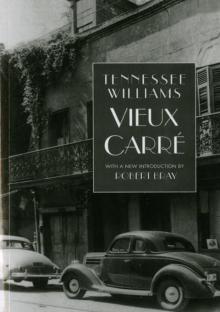 Vieux Carre
Vieux Carre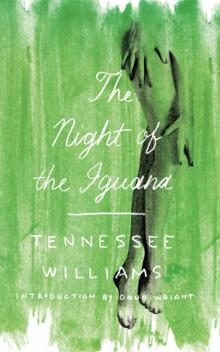 The Night of the Iguana
The Night of the Iguana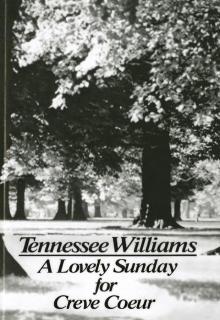 A Lovely Sunday for Creve Coeur
A Lovely Sunday for Creve Coeur Sweet Bird of Youth
Sweet Bird of Youth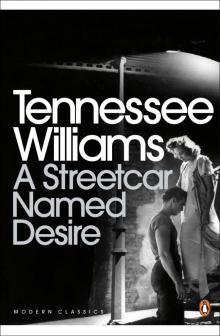 Streetcar Named Desire
Streetcar Named Desire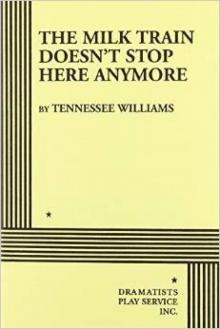 The Milk Train Doesn't Stop Here Anymore
The Milk Train Doesn't Stop Here Anymore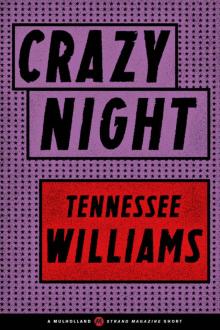 Crazy Night
Crazy Night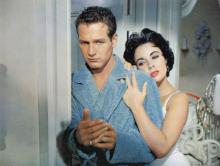 Three Plays of Tennessee Williams
Three Plays of Tennessee Williams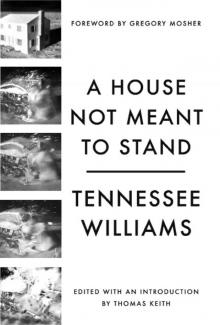 A House Not Meant to Stand
A House Not Meant to Stand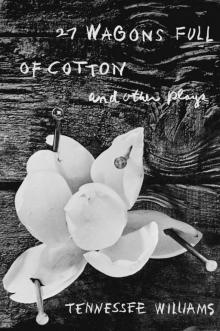 27 Wagons Full of Cotton and Other Plays
27 Wagons Full of Cotton and Other Plays Tales of Desire
Tales of Desire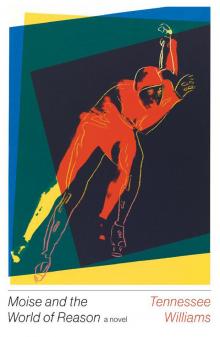 Moise and the World of Reason
Moise and the World of Reason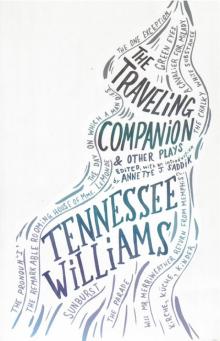 The Traveling Companion & Other Plays
The Traveling Companion & Other Plays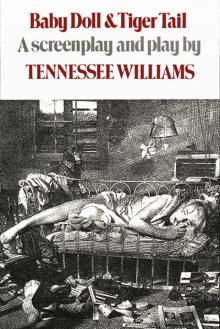 Baby Doll Tiger Tail: A Screenplay and Play by Tennessee Williams
Baby Doll Tiger Tail: A Screenplay and Play by Tennessee Williams Memoirs
Memoirs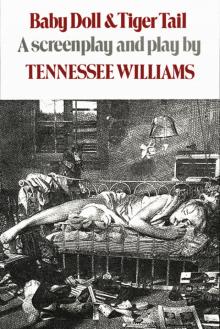 Baby Doll & Tiger Tail
Baby Doll & Tiger Tail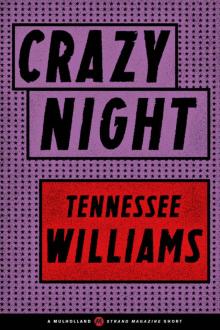 Crazy Night (A Mulholland / Strand Magazine Short)
Crazy Night (A Mulholland / Strand Magazine Short)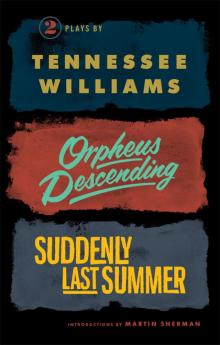 Orpheus Descending and Suddenly Last Summer
Orpheus Descending and Suddenly Last Summer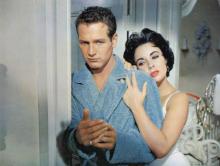 Three Plays
Three Plays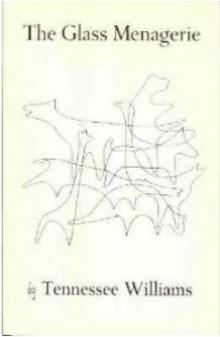 The Glass Menagerie
The Glass Menagerie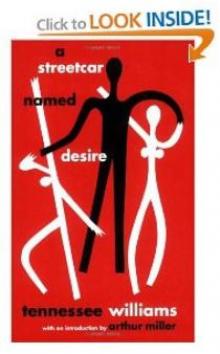 A Streetcar Named Desire
A Streetcar Named Desire